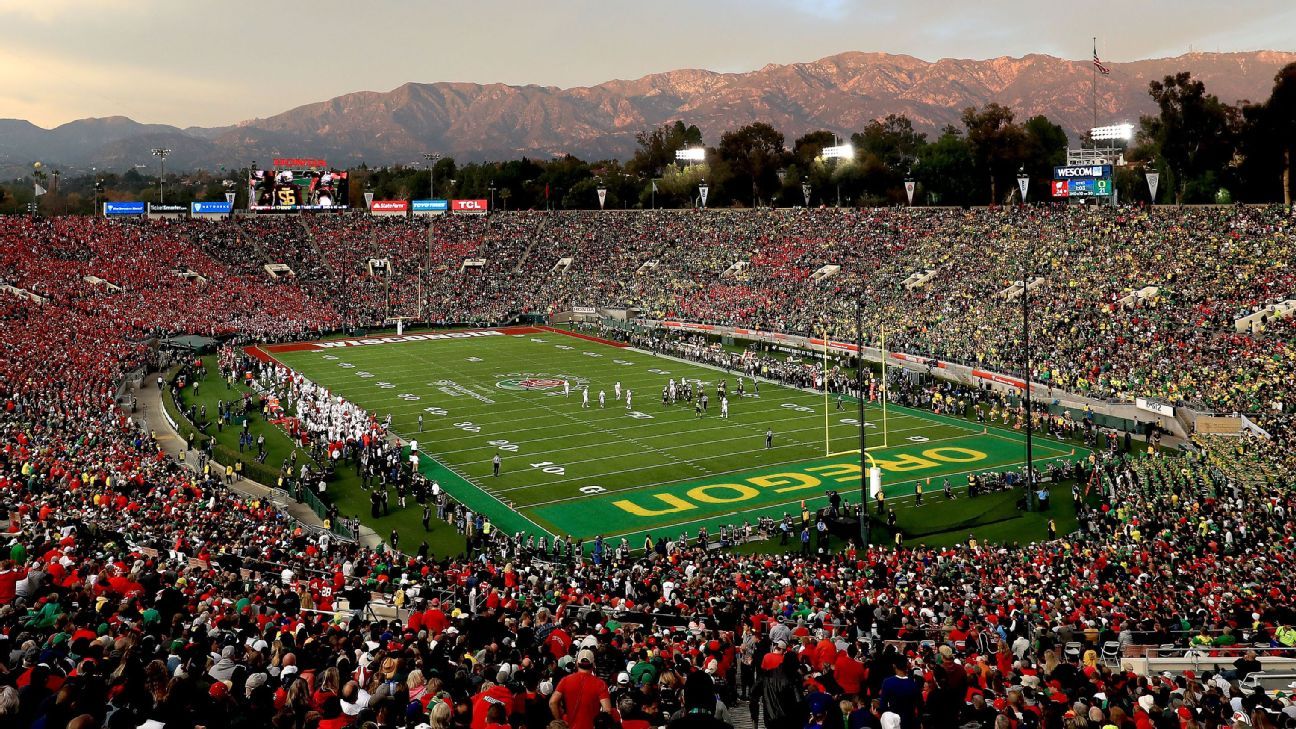Fair points, I guess here's what I'd say. In broad strokes my hopes would be:
1. Above all else kill the concept of the expanded playoff. That is the cancer at the heart of all of this.
2. Make some meaningful attempt to preserve the Shrunken VIII's status as major conference programs
3. Pool TV resources in some way, with the idea of enticing other broadcast entities to battle ESPN hegemony over the sport
4. Think innovatively about how this moment of change (especially NIL) could be leveraged to bring marketable player talent into this alliance beyond football, to compete on terrain that isn't the SEC's core competency.
What I have a sense of what's to come is
1. Strike a fundamentally cosmetic bargaining position in order to gain negotiating leverage in the development of the expanded playoff
2. Cement the death of the Big XII by consolidating the remaining "major conference" contenders into a structure that excludes the Shrunken VIII.
3. Conspicuously leave out anything to do with TV money, preserving the fundamental structure of the game as these mini-gangs of schools in a total war for TV dollars, to the exclusion of any other consideration. Again, that's at the core of the existing problem, and no alliance means anything as long as that structure dictates where money goes.
4. A ton of hot air about student athletes and preserving the cuddly purity of the non-revenue sports and how horrific it is that this gauche SEC has played to win the game that is explicitly and almost solely Jim Delany's personal legacy and a framework imposed on the sport almost entirely by the Big Ten.
I may be completely wrong, but that's my sense. We'll see.
I suppose, at the end of the day, I struggle to see what first step these conferences might have taken that provides a better opportunity to achieve your goals than what occurred.
1) as far as the 4 vs. 8 vs. 12 vs. 64 team playoff scenario goes, that cat is out of the bag. There is seemingly no route here that would have logically occurred to change that. This alliance, at best, slows the pace this evolves and at worst continues it on its merry way. Given that every conference and the vast majority of fans (look at the response to the very question you posed here) are in favor of it, it's going to happen. Ultimately, the alliance does nothing to worsen that situation, but very likely creates a greater likelihood that the ultimate structure is more balanced for all (including the "Shrunken 8").
2) I see no path where the Pac-12, Big 10 or ACC as individual entities would have any power or interest in saving the Big 12. At a minimum, as a collective they will bolster the Big 12 through scheduling opportunities, balanced playoff considerations and a general protectiveness of the ecosystem within college athletics.
3) I fail to see how this does anything but support the possibility of a more evolved perspective with regard to media rights. We know that the conferences aren't pleased with how in bed with the SEC ESPN has been. The ACC is pretty openly disgruntled with their deal, the PAC-12 has handled their media rights poorly and the BIG10 is primarily aligned with Fox. At best, this is a monster opportunity to move in the exact direction you desire, at worst we get status quo. But to assume this doesn't at the very least provide a very possible route to improve upon the current situation seems very pessimistic.
4) honestly, sincerely... I don't follow the logic that this in any way lessens the longer term ability for these conferences to promote and grow additional sports. I genuinely struggle to follow the logic presented as a negative here.
Ultimately, the situation stemming from the SEC's latest expansion has so many potential implications it's hard to see them all today. As fans, we can be left with anywhere from 0% satisfaction to 100% satisfaction when the dust settles. This doesn't get us to 100% (I dunno, something like universal cohesiveness with competitively, regionally balanced conferences operating together to create a sports content package that is easily accessible and affordable across a large number of collegiate sports). But what this does absolutely provide, is an avoidance of the 0% scenario (thinking a 30 team league of superstar programs from around the country freezing out every other program, including Illinois). It's a borderline relief to see this as a first step, as opposed to an announcement that the Big 10 is adding Colorado and Boston College, leaving the Pac-12 and ACC fighting to shore up their borders. I dunno what this alliance ultimately means for the ceiling of fan satisfaction, but I am extremely confident it raises the floor of fan satisfaction substantially.


